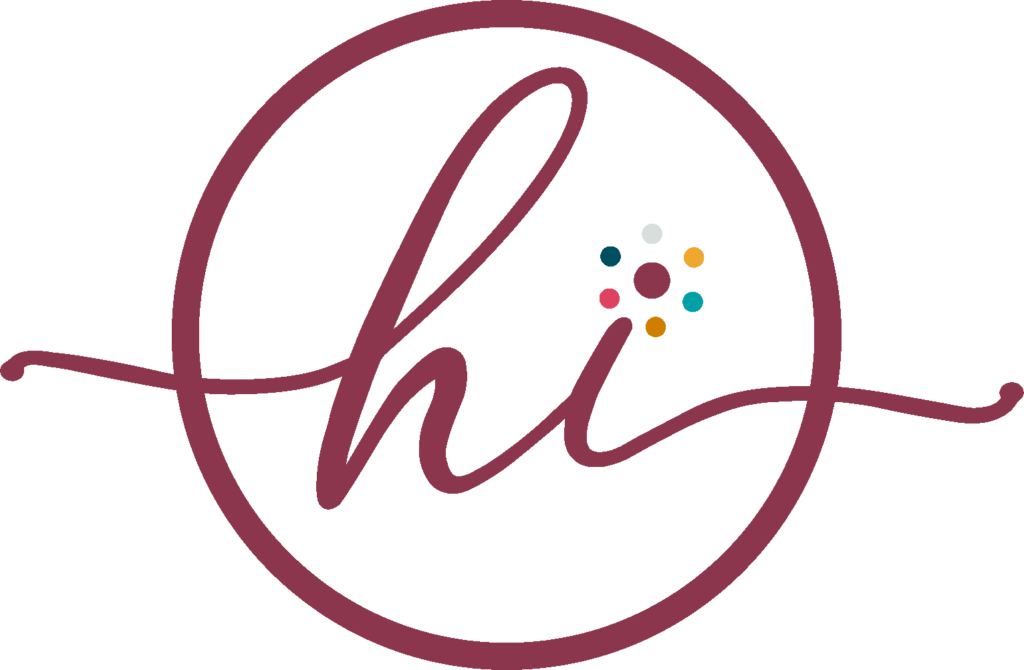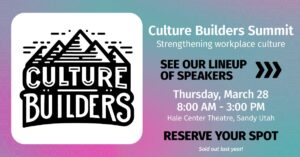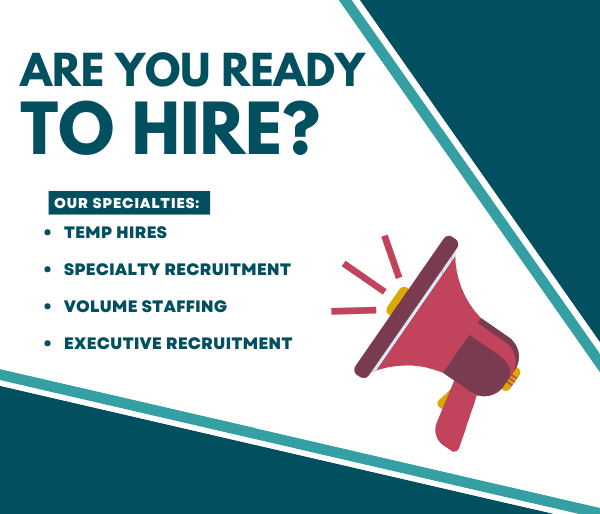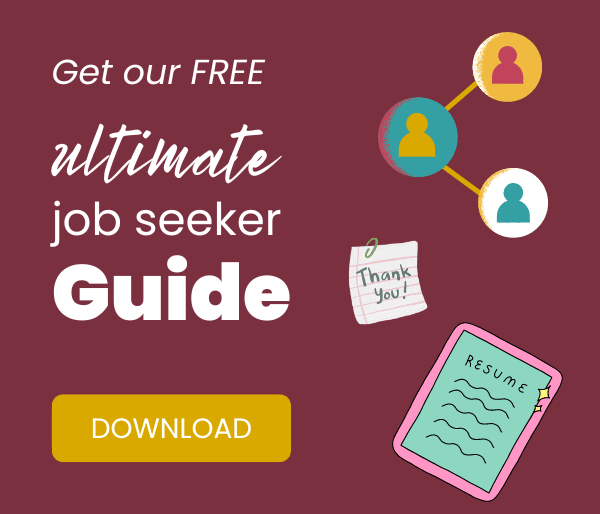
By Collin Gibeault
20 Ways to Stand Out In A Job Interview
1. Research The Company
The first step you need to take when attempting to stand out in a job interview is to research the company. Researching your prospective employer will help you answer any questions and resolve any doubts you may have.
Something that can come in handy once you land the interview will be knowing the company’s core values. You will want to pay particular attention to these and possibly even memorize them. Reviewing the company’s core values, researching their mission statement, and knowing their possible target demographic will help you to better understand where their weaknesses can become your strengths.
Imagine you were applying to work at a Fortune 500 company and you found out that diversity in the workplace was their number one priority. The interview would provide an excellent opportunity to bring up your previous volunteer experience with a minority group in your home community. This would be a great example of research in action and show the company your values align with there’s.
These are a few resources readily available to help in your research:
- Company Website
- Company LinkedIn
- Glassdoor
- Payscale
- Salary
2. Research The Interviewer
If you’re able to, the first course of action you should take is to login to LinkedIn and visit the company’s page. Once you’ve arrived there, you can select “People” and search for the recruiter or hiring manager. Looking through their personal LinkedIn profiles will provide ample opportunities for connecting with them later. You can use different experiences or interests they talk about on their profile as talking points to break the ice during the interview.
Websites like Glassdoor can provide a lot of useful information about the interview process. You can find things like interview questions, previous employee salaries, and employee reviews of the company. Coming in prepared with a salary range you’re willing to accept is essential to the negotiation process. If you aren’t aware of what the current market value of the role is, you are more susceptible to a lowball offer and may allow the company to take advantage of you.
3. Dress For The Interview
Your first priority when thinking about what you should wear is, “what will the interviewer be wearing?” You should try and match their formality or be a little overdressed for your interview. This doesn’t mean you can’t be yourself or have your own style.
You can wear a bright colored tie or dress shirt to showcase who you are, but make sure that it fits the environment. You need to be professional in your dress, but also express your own personality. It is possible to go overboard so tread lightly. Your goal is to be memorable, not to get a laugh out of the interviewer.

4. Get To Your Interview Early
There’s an old saying that states, “Early is on time, on time is late.”
This may seem crazy, but your promptness will make a difference in the hiring manager’s decision making process. Being early to your interview shows the hiring manager that you can be trusted to meet deadlines and show-up to conquer any challenge.
Think of it this way – if you can’t get to the interview on time, why should the company trust you to show up to an important board meeting with the CEO on time?
5. Bring a Hard Copy of Your Resume and Cover Letter
A hard copy of your resume and cover letter may seem like a small thing that will never be used, but this provides one unique opportunity to help you get the job.
Hiring managers go through hundreds of resumes and by the time they interview you, they may have forgotten about what on your resume impressed them. Having that hard copy will give them a refresh on why they picked you.
6. Kill Them With Kindness
Although not everyone there will be making the decision on whether or not to hire you, the way you treat everyone in the area could impact your chances. The receptionist, other candidates, and even individuals passing you in the hallways may be connected to the hiring manager in some way.
Not only could they be connected, but what if the hiring manager witnesses you speaking harshly towards another individual? Would they rather hire you, or an individual who is kind and considerate to those around them? Also, be sure to remember the people you meet before, after and during the interview. Remembering names goes a long way.
7. Answer Questions Using The Star Method
You may be thinking, “what is the STAR method?” That’s a great question!
The STAR method is an acronym that stands for “Situation, Task, Action, and Result.” This acronym will help you remember where to start when answering different behavioral questions.
This method works best when you are as specific as possible with your answer. Make sure not to ramble or get off-task when providing your answer. To better understand the acronym, here’s a quick breakdown to each section of the STAR method:
Situation: Before answering a question, you need to provide context about the answer you’re about to give. The best way to do that is by describing the situation you were in. You need to be sure to provide enough detail for the interviewer to understand what was required of you at the time but not too much information. The situation could be from your current job, previous jobs, volunteer experience, or any task that may be related to the question.
Task: The task portion of your answer specifically answers the question, “what did I set out to accomplish?” In this part of the answer, you should detail your objective and what you personally set out to do.
Action: After providing context and laying out the task you set out to accomplish, you now need to describe the actions you took to address the issue at hand. Make sure to provide enough detail that the interviewer can understand the process you took, but make sure to not go overboard. Your actions should focus on what you did to accomplish the task, not others. What steps did you take? What was your contribution to your team?
Result: Now is the time to shine. This part of the STAR method shows the outcome of the actions you took. Don’t hold back! Take credit for your work. What did you end up achieving? How did you do? What did you learn? How much revenue did you generate? Make sure to include two to three different results that you produced from the actions you took. It is great if you can make this part quantitative, to really impress the interviewer.
If you use the STAR method to answer questions during the job interview, it will help you to stand out as an aware, cohesive candidate.
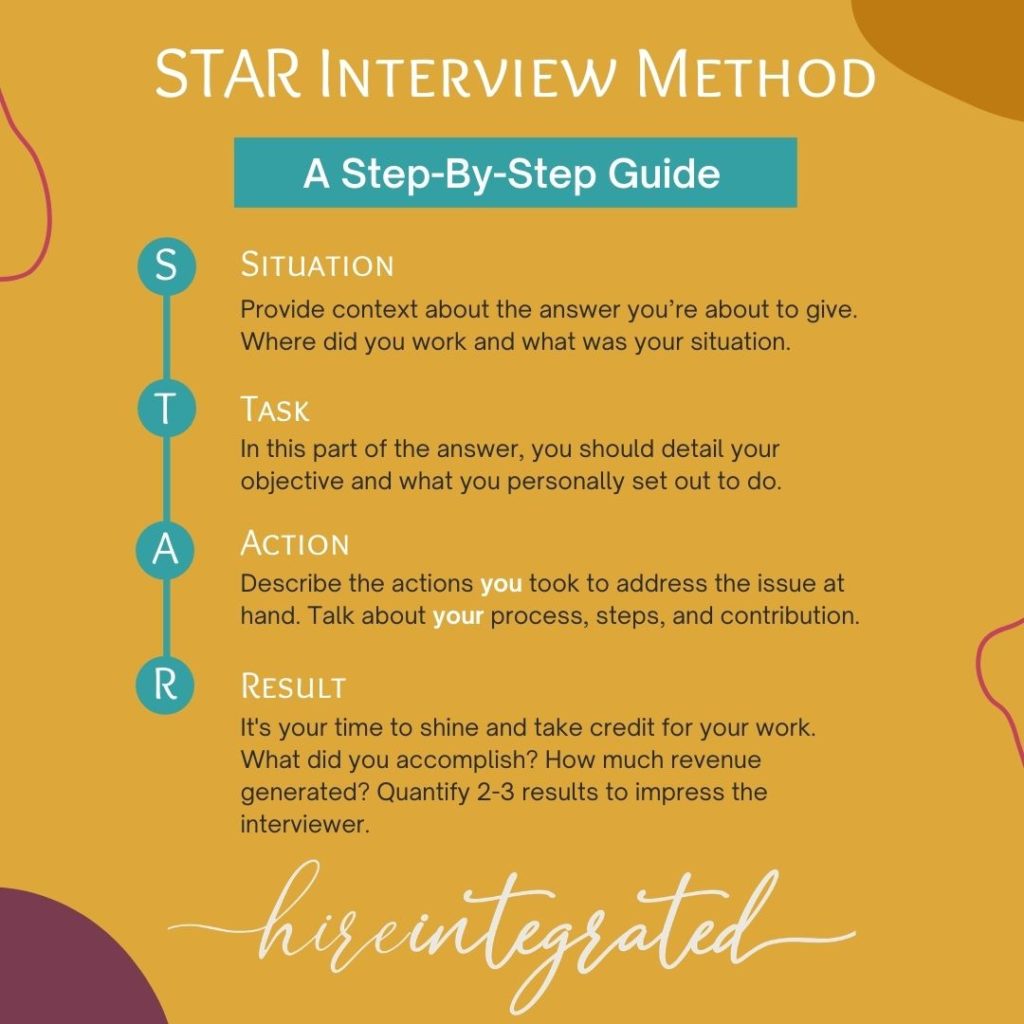
8. Practice Answering “Tell Me About Yourself”
This may seem like the easiest question to answer of your entire interview, but it’s one of the most important. It will be the first question you receive, and it will set the tone for the following questions. This question provides you with the perfect opportunity to set the bar high and ace the interview.
You will need to practice talking about your strengths, previous experiences, and interests. Your answer to this question should change a little bit based on the role you are interviewing for. If you can ace this step in the interview process, you will set yourself up for future success.
9. Show Your Added Value
One thing you can do to prove you will add value to the company is by utilizing the job description beforehand. Take the job description and break it down by each bullet point. With each bullet point, write down an experience you can remember that shows you demonstrating that skill or ability. Then, talk about the result that came from it.
Go into as much detail necessary using the STAR method previously mentioned, but make sure to keep it professional and concise. You want to be sure to keep the interviewer engaged and wanting to learn more.
10. Make A List Of Your Strengths
Before you head to your interview, write a list of all your strengths. Relating your skills and strengths to the job will help you stand out during the job interview. This will allow you to have them readily available in your mind and make them easier to use in any questions that may come up.
11. Describe Your Accomplishments
During the interview, you will need to describe your accomplishments. It may be useful to write down different results you’ve produced in previous roles. Go through the past five years worth of experiences.
Generally, you don’t want to have more than the past five years on your resume, but these accomplishments could also be drawn from roles beyond five years ago. You will want to emphasize your approach and how the skills you used can be translated to your new role.
12. Provide a Portfolio of Previous Work
This part of your preparation will provide a unique opportunity to be creative.
If you’re a designer, you could create an entire book of your previous design work. You can use this as your portfolio.
If you worked as a social media manager, you could provide examples of your posts and how they performed through simply bringing it up on Instagram on your smartphone.
If you’re a web designer, you could create a simple website to showcase previous websites you have worked on. There are many ways to showcase a portfolio, these are just some ideas to get you started.
If most of your work experiences consisted of contract work, learn how to strategically list contract work on resume.
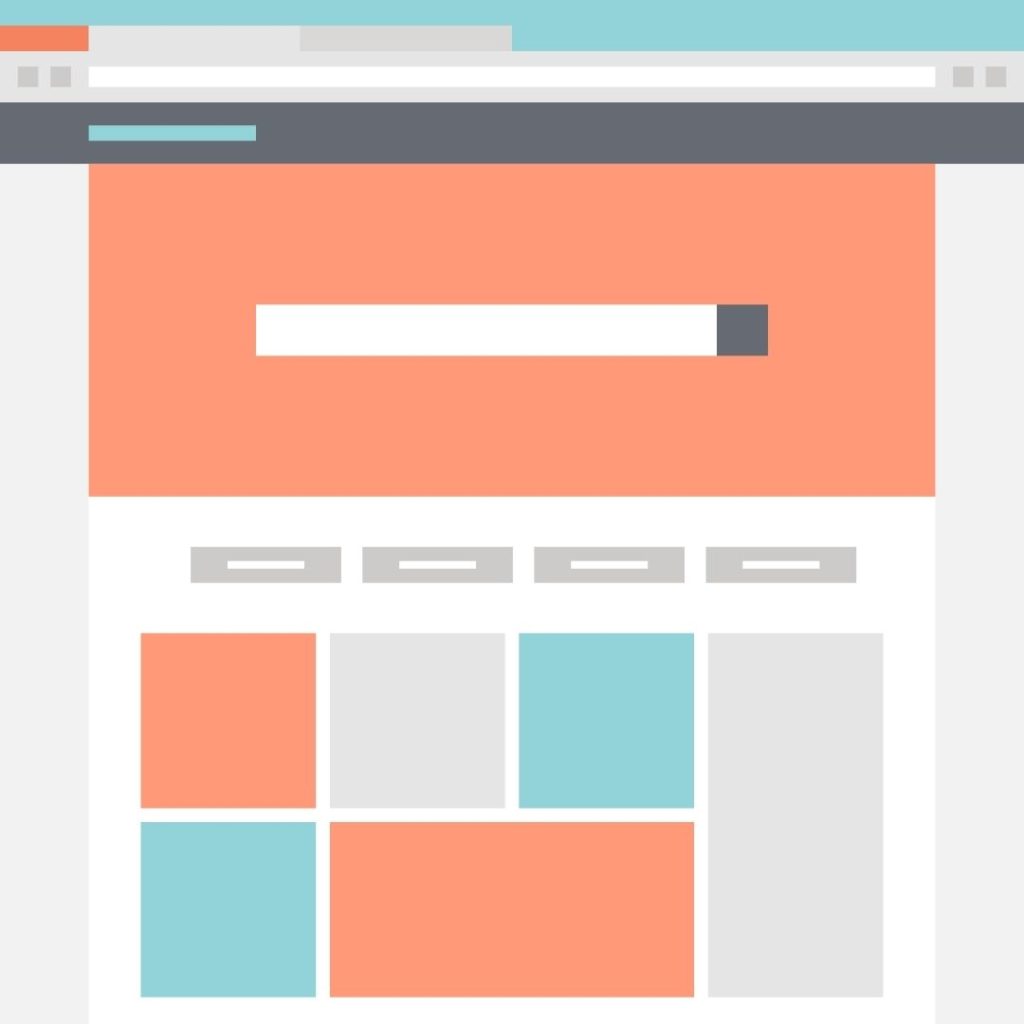
13. Use Company Values In Your Responses
At this point, you already did your research on the company. You should have come across the company’s mission statement and company values. These are a gold mine for creating rich responses to any interview questions you’re asked.
Including some of their company values in your responses will show that you understand their values and look forward to working towards their mission.
14. Present A 30-60-90 Plan
You may be wondering, what’s a 30-60-90 plan? According to the Muse, “A 30-60-90 day plan is what it sounds like: a document that articulates your intentions for the first 30, 60, and 90 days of a new job. It lists your high-level priorities and actionable goals, as well as the metrics you’ll use to measure success in those first three months.”
A 30-60-90 day plan can show your hiring manager that you’re ready to hit the ground running. Providing a hard-copy of your 30-60-90 day plan and the results you expect to achieve will impress them and surely help you stand out during the job interview.
Describe any actions you plan on taking and walk them through your thoughts on what success means in the role. You can also incorporate the strengths you previously listed for yourself into different parts of this 30-60-90 day plan. After you have presented this plan, ask the interviewer, “what does success look like in this role to you?”
15. Say Yes To, “Do You Have Any Questions?”
This may seem counterintuitive, but asking questions at the end of your interview actually shows signs of confidence, curiosity, and desire to succeed in the role.
Questions about the company, the role, or even the culture, are actually welcomed by the interviewer. Here is a list of questions you may want to consider asking:
- What does the day-to-day look like in this role?
- What are daily challenges for someone holding this role?
- If you could go back in time, what do you wish you would’ve known about the company?
- What are the things that if completed in the next three to six months, would make the biggest difference to this company and this position?
- What is the most rewarding project you have worked on so far?
- Can you describe important projects that you’re working on now?
- What skills does a candidate need to perform well in this role?
- Name a few challenges that a candidate may face in this position?
- Is this a new position?
- What training opportunities do you offer to employees?
- How does the company evaluate the performance of employees?
- Can you discuss how your role has changed since you’ve started working for the organization?
- Where do you see the company going in the next three to five years?
- What is the most exciting part about working in this role?
- What is a typical career path for someone working in this position?
By asking quality questions during the job interview, you can show off your preparation, and it will make you stand out.
16. Mind Your Body Language
Your body language also speaks volumes during an interview. You will want to give all of your attention to the interviewer by maintaining eye contact and having proper posture. This will signal to the interviewer that you are confident and interested in the role. Stay focused on the interviewer and answer all of their questions to the fullest extent.
17. Make Sure To Break The Ice
This one may not be as obvious as the others. When you’re researching the company and the interviewer, you’re acquiring arrows in your quiver to talk about when you first interact with them.
If you find an interesting news article about the company, bring it up at the beginning of the interview to get their thoughts on the subject. If you saw on the interviewer’s LinkedIn profile that they like to play baseball, chat with them about it.
If you find something in common with that person while doing your research, this provides an awesome opportunity for you to shine and relate to them on a new level. Take advantage of this opportunity!

18. Start Doing The Job
No, the goal is not to work for free, but you do need to show that you’re competent at the job. You need to demonstrate how you will add value to their business. Think of questions like, “What can I do now to show that I’m already thinking about this role? What can I do to make this manager’s life easier?”
The hiring manager or interviewer will know you’re valuable to the company when you come with a list of suggestions that could be implemented to make an impact.
19. Reiterate Your Interest In The Position
Before you exit the interview, express your interest in the position and thank the individual for spending their time speaking with you. If the interviewer has any additional details or information they need to provide, this will be the time. They may outline the next steps in the interview process and how they will be contacting you in the coming days. If you haven’t heard back from them within 48 hours, send a follow-up email expressing your interest for the role, what you learned in the interview, and that you look forward to hearing back from them. This will keep them fresh in your mind.
20. Send A Thoughtful, Handwritten Thank You Note
In a study performed by Zety.com, 37% of employers passed on a candidate simply because they didn’t follow-up with them post-interview. This means you increase your chance of acquiring the job by 63% simply by sending a thank you note.
If you’re able to, send a hand-written card addressing the interviewer and thanking them for the opportunity to speak with them. This kind gesture will help you stand out over thousands of other candidates. Don’t miss out on increasing your chances by doing something so simple.
You may not have a 100% chance of acquiring your next job, but you definitely will stand out in your next interview if you use these 20 tips. If you’re unsuccessful, don’t worry! There will be many more opportunities in the future. Keep pushing and stay positive during your job search.

